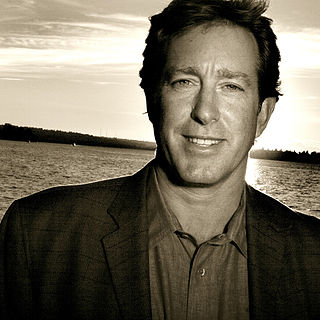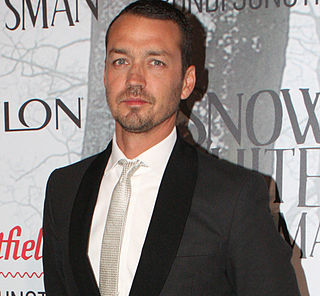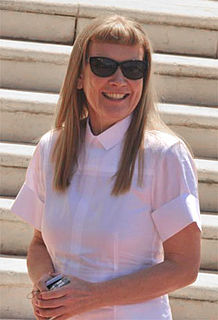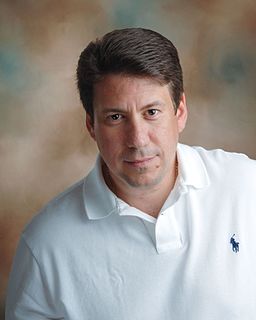A Quote by Robert Zemeckis
I think that technological tools that filmmakers use to tell stories, in a perfect world, need to become invisible. When it's brand new and it's never been seen before and you're birthing this stuff, it's very much on people's minds.
Related Quotes
I think filmmakers in general are, as the tools become more and more advanced, you're able to tell stories in a way that I think is more realistic. The technology just wasn't there up until pretty recently, and it takes a bit of time for the normal artistic way of approaching something to become a mainstream thing.
It's certainly something we haven't seen before in terms of a fully commercial global brand - really a family of brands - not just Trump but also Ivanka, who has a sub-brand. We've never seen this before. We've had presidents in financial conflicts of interest before, but this phenomenon where a sitting president image avatar is out there selling golf courses and condominiums, even as he is in office and having the value of his personal brand inflated dramatically by fact of his being president, is new territory.
When filmmakers are kept from making films, there's a lot of different reasons why. Sometimes you work on a film and cast it and do all the work and can be just a month away from shooting, and all of a sudden, the whole thing goes up in smoke. But I do think the advent of a digital revolution is going to provide people with opportunities to make films that they never would have had before. I think you can do some pretty credible stuff now with very, very little money. Which I think is great for young filmmakers.
I think we create our world through stories. We use storytelling to escape or protect ourselves from the unimaginable and the horrible - from the real, in a way. It's like white light - if you put everyday reality through a prism you get this rainbow of colors that you couldn't see before. I'm interested in exploring the world to show the things that are invisible. And not just undocumented aspects of reality, but to actually make manifest things that have been hitherto invisible through the intervention of filmmaking.
Each of us is comprised of stories, stories not only about ourselves but stories about ancestors we never knew and people we've never met. We have stories we love to tell and stories we have never told anyone. The extent to which others know us is determined by the stories we choose to share. We extend a deep trust to someone when we say, "I'm going to tell you something I've never told anyone." Sharing stories creates trust because through stories we come to a recognition of how much we have in common.
When I was in New York I heard many people saying that the independent film industry was in big trouble. I was reflecting on this when I came home. Realizing that ever since I started filmmaking, people have being saying that. But somehow it keeps going. Filmmakers keep going. We need stories to make sense of the world and some people like me are driven to tell them. I have faith this will always be possible.
I found a lot of stuff that's never been seen before. That was the goal: to not use cliché Cold War footage but give people a sense of the place and setting. It's a field you still need. At first it was a lot of fun, and then later it became a little bit intimidating. "Oh my God, I've got so much footage. Where am I going to put it? What am I going to do?" I ended up really only reviewing about 20 to 30 percent of what I had. So it was a task.
I like to go on stage with a variety, with some stuff that's been around for a handful of years, some stuff from the last year, some stuff is from last week, and some stuff is brand spanking new. Those are the moments that excite me - when I'm coming up to a brand new bit. The more virgin the snow, the more fun it is to run on.
Ask people who are close to the natural world: farmers, people who work the land or in some way use the land for their livelihoods. They will tell you what they are seeing isn't so good. They will tell you the changes they have seen in the past twenty years are remarkable in one way or another and unlike anything they had seen before that.
The most important things in life can't be seen with the eyes. Ideas can't be seen. Love can't be seen. Honor can't be seen. This isn't a new concept. Judaism and Christianity and Islam and Buddhism and Taoism have all taught for thousands of years that the highest forms of reality are invisible. God is invisible, and he created the universe. Our souls are invisible, and they give life to our bodies. Angels are invisible, and they're the most powerful of God's creatures.
God gave us minds to think with and hearts to thank with. Instead we use our hearts to think about the world as we would like it to have been, and we use our minds to come up with rationalizations for our ingratitude. We are a murmuring, discontented, unhappy, ungrateful people. And because we think we want salvation from our discontents.






































